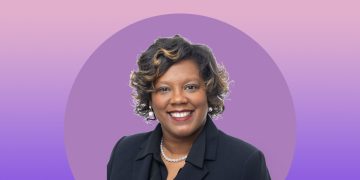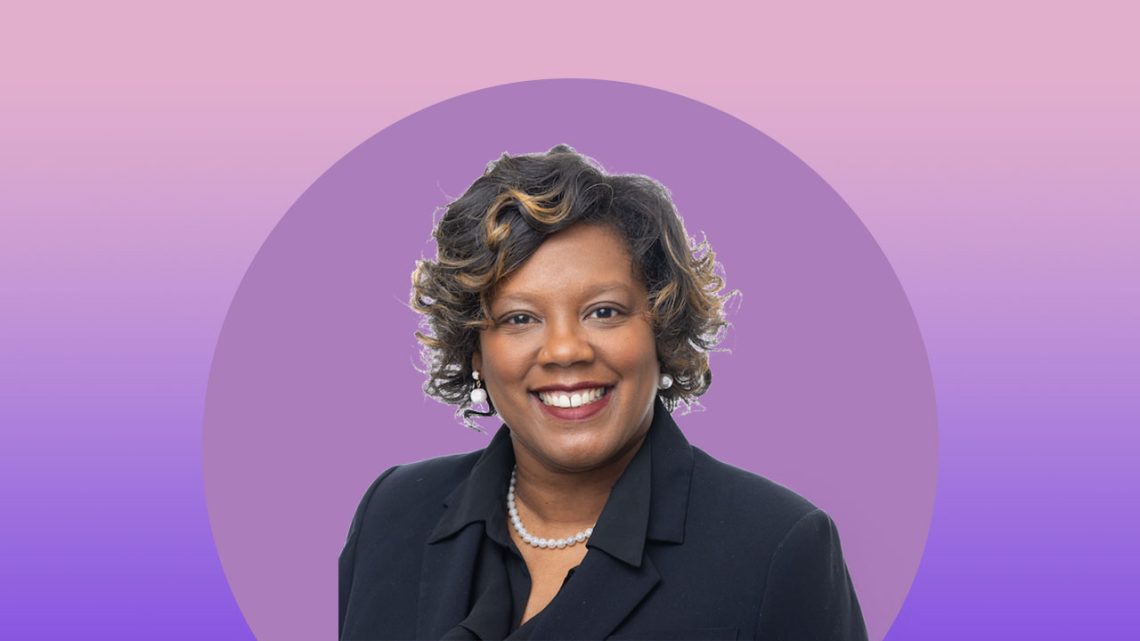I was born at John A. Andrew Memorial Hospital, the first black hospital in Alabama, located on the campus of Tuskegee Institute (University). This hospital became the hub for physicians in the South to receive continuing education when they were otherwise denied because of the color of their skin. From birth, I was surrounded by black physicians, professors, artists, musicians, lawyers, and entrepreneurs who consistently exuded greatness in their field of choice.
One could not grow up in Tuskegee without constantly being reminded of the city’s rich history. It was the birthplace and/or served as the home of civil rights activist Rosa Parks, composer William Dawson, civil rights attorney Fred Gray, entertainer Lionel Richie, scientist George Washington Carver, Olympic athlete Alice Coachman-Davis, educator Booker T. Washington, and many other historical figures and civil rights pioneers. The overall expectation was that you represented yourself, your family, and your community to the best of your ability at all times.
During my formative years, my mother and my maternal grandparents had a significant cultural influence. My grandfather often made me stop what I was doing and watch if the Alvin Ailey Dance Theater or a concert was on television. My mother and grandmother insisted that all little girls take dance lessons to help you be graceful, gymnastics to help with flexibility and coordination, and music to be well rounded. There was a piano in my home, and I cannot remember not playing the piano. Even though my grandmother insisted on piano lessons for everyone, she happened to be the only one in the household who was not a musician. We were also not asked if we wanted to be in the school’s band, but rather what instrument we wanted to play. Participation was expected.
I began piano lessons around the age of five or six, and throughout middle and high school, I often played piano for the Sunday School and Youth Choir at my church. Our small-town elementary school included Kindergarten through Grade 8 with no band program. The high school band director, Mr. William C. Brassfield, previously taught three of my family members, and I began clarinet lessons with him while in the seventh grade. In the eighth grade, I joined the high school band and remained throughout all years of high school. Mr. Brassfield strongly encouraged me to audition for the Alabama All-State Band and university Honor Bands, and often transported me to those auditions and festivals, something that is strongly frowned upon today. He was a trusted, extended member of our family, as he was with many other families in our community.
My high school’s student population was 100 percent black, and Mr. Brassfield made it a point to ensure all band members were comfortable participating in any music program outside of Tuskegee. Exposure was one key to our success. We learned a variety of marching and drill styles, played a variety of music, participated in district and state events, and traveled internationally. In elementary school, I completed the first and second grades in the same year. Therefore, I graduated as Salutatorian of my high school class at the age of sixteen. At the influence of my high school band director, mother, and grandmother, I enrolled at the University of Alabama in the fall of 1990 with academic and music scholarships.
I was a young freshman anxious to be a member of the Million Dollar Band that happened to be led by the first woman NCAA Division I marching band director, Kathryn Scott. In addition to participating in the university marching, concert, and chamber ensembles, I took organ lessons at the request of my maternal grandmother. I was never very good, but she insisted just in case I needed to play for a church one day to earn money.
For my first year of teaching, I was named the band director at Westlawn Middle School, an all-sixth-grade school in Tuscaloosa, AL. The school system had been under a federal desegregation order since 1979; therefore, every sixth grader in the city attended that school. As a twenty-year-old, first-year teacher, I was challenged to restart the band program that was eliminated fifteen years prior. I succeeded but left after three years when my high school band director announced his retirement after twenty-six years of leading the program. I was honored to have been selected to continue his legacy. I welcomed the challenge of leading my own high school band.
I remained in Tuskegee for four years and eventually moved a few miles west to Sidney Lanier High School in the capital city of Montgomery, one of the largest high schools in Alabama at the time. I was challenged to rejuvenate a once-thriving band program whose participation was affected by the new “no pass, no play” state policy. Recruiting students and maintaining the program was a challenge, but I learned that making meaningful personal contact and developing professional relationships mattered the most when executing a plan. Following the philosophy of my high school band director, I chose to use music to expose students to cultures outside of their neighborhoods. That continues to be my purpose today.
I soon married my high school sweetheart, Errol, and had a son, Errol III, who is now a college graduate and professional musician. We moved to the Atlanta suburb of Fayetteville, GA, where I served as Fine Arts Chairperson and Director of Bands at Fayette County High School for twenty-one years. My students performed nationally and internationally and won lots of awards, but I am most proud of how the program’s culture developed throughout the years. It was one that was welcoming to all students regardless of background and was a true reflection of the school’s demographics. The students enjoyed the experience of sharing music through their concert performances sometimes more than winning a marching band competition. However, the greatest joy of my career was having our son in my band program for four years. It was a privilege to daily watch his love for music grow.
I have had the distinct privilege of conducting middle and high school students in various honor ensembles all over the country. Participating young ladies would often ask if I was really a high school band director in charge of all things for the school’s program, including marching band. After saying, “Yes,” I would always follow up with, “Why? Why are you asking?” I could have easily misunderstood their simple question as questioning my credentials. (That has happened when speaking with adults.) But I soon learned that the young ladies were only seeking advice on how to be a leader in their school band programs. Many of the young ladies expressed that their band directors saw something in them that they did not yet see. Their self-assessments often confused me, as confidence has been my strong point. But I saw myself in them, as I would have been the one to walk up to a stranger in music and ask.
Consistently, the young ladies would tell stories of how they had been named drum major or section leader, or that they were appointed to another leadership position. The young ladies were worried because they were shy, or small in stature, or felt they didn’t possess the confidence to do the job. It was never a question of skill—they were honor band musicians! I wanted to know WHY they felt their band director was wrong about their leadership potential. Why did they doubt themselves?
After returning home and voicing my frustrations (once again), my husband asked, “What are you going to do about it?” Me? What do you mean what am I going to do about it? He reminded me that complaining means nothing if you don’t try to make it better. He was right. So, what could this fifteen-year veteran band director do?
That conversation led to the founding of the Athena Music and Leadership Camp. Athena is the Greek goddess of the arts and wisdom, a perfect name for the program! We created a place for middle and high school young women to grow and blossom both as leaders and musicians. We wanted young women to know that they are worthy of leadership positions and that they have a lot to offer. They should not question their leadership opportunities but seek the best ways to serve in those positions. They should use the opportunity to let the world know that “through their music” they can do anything!
In 2024, I was honored to be the first Black woman inducted into the prestigious American Bandmasters Association in its nearly 100-year history. I have retired from high school band directing, but continue to lead the expanded Athena Music and Leadership program. In addition, I now serve as the conductor of the Symphonic Band and music education professor at the University of West Georgia where I have the privilege of training and inspiring the next generation of music educators.



























